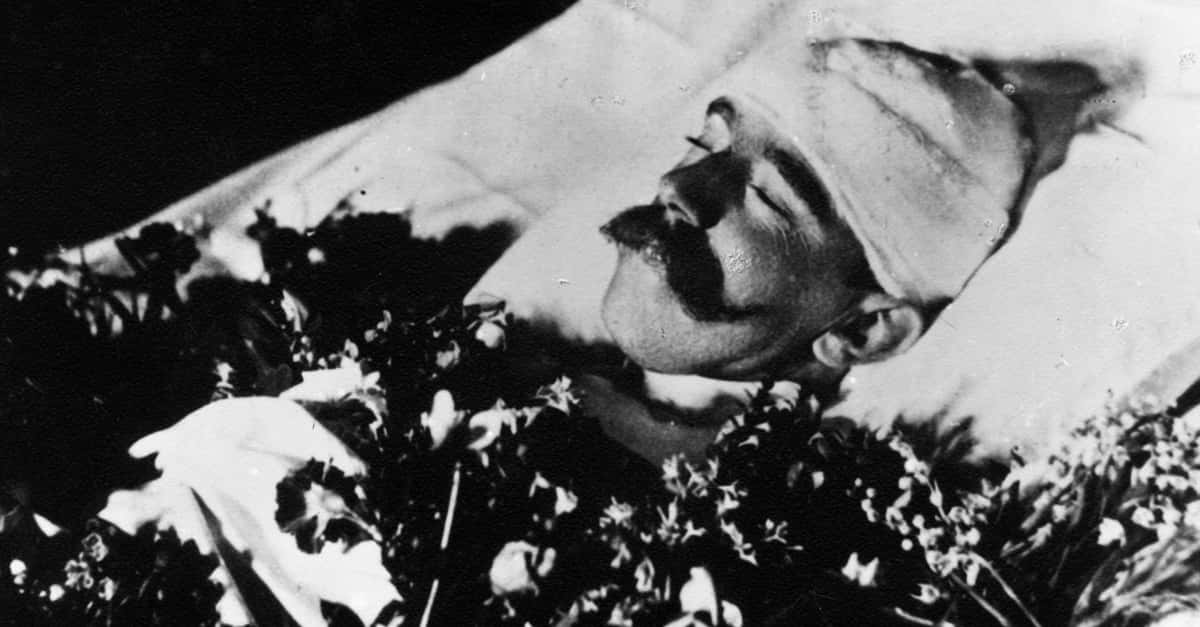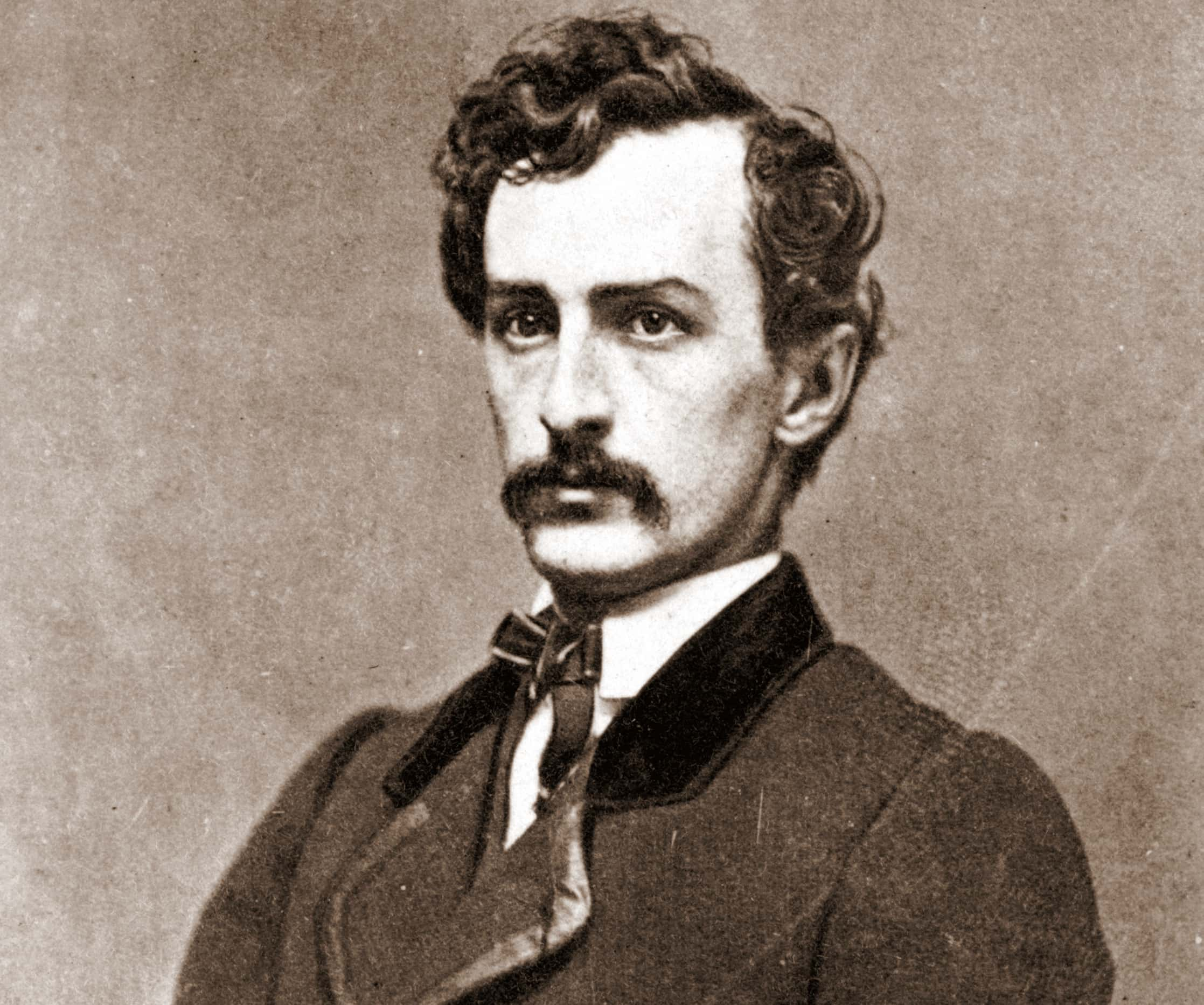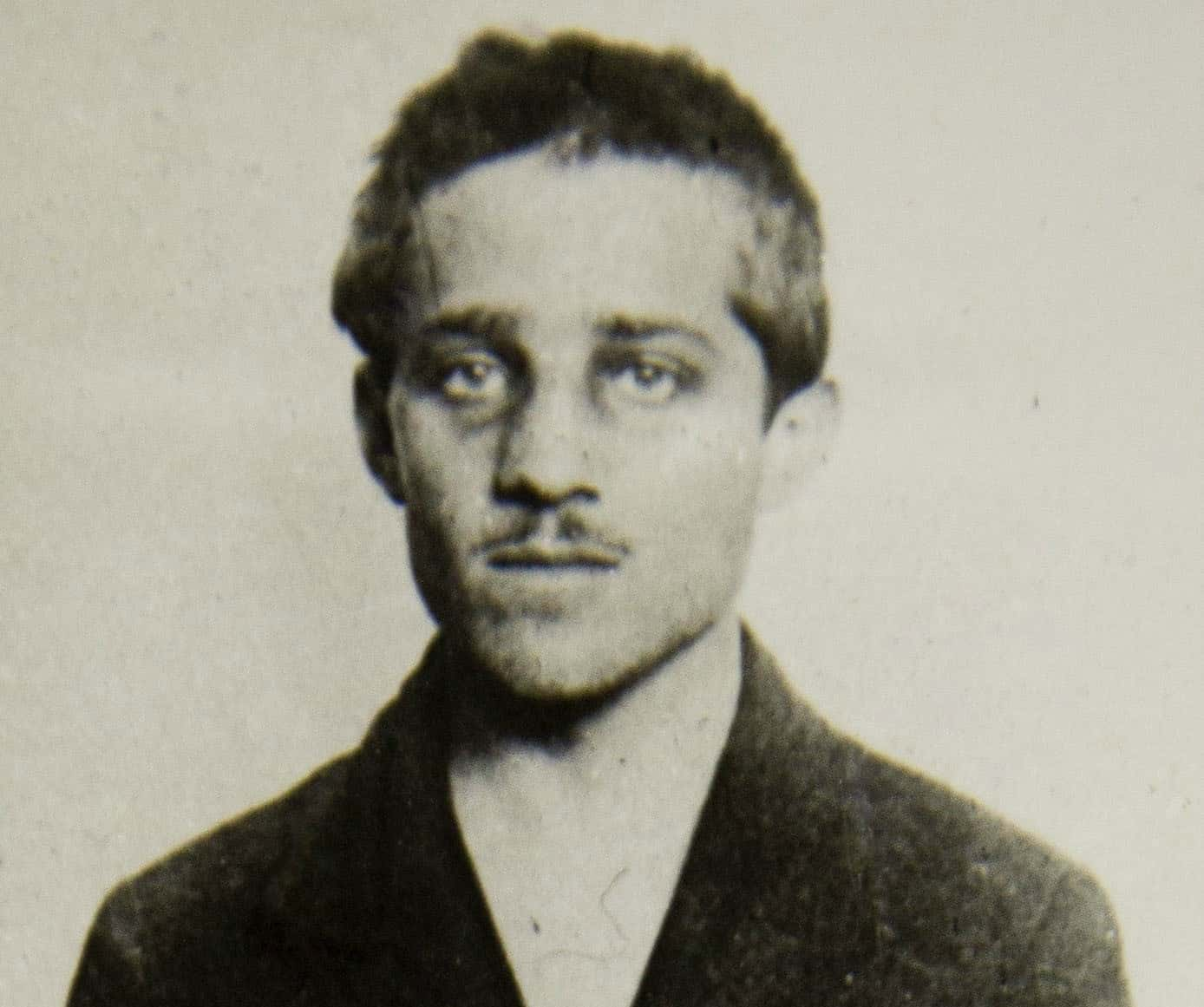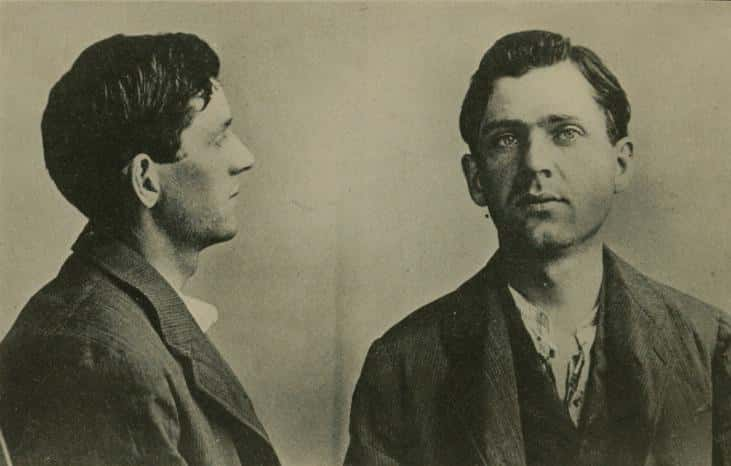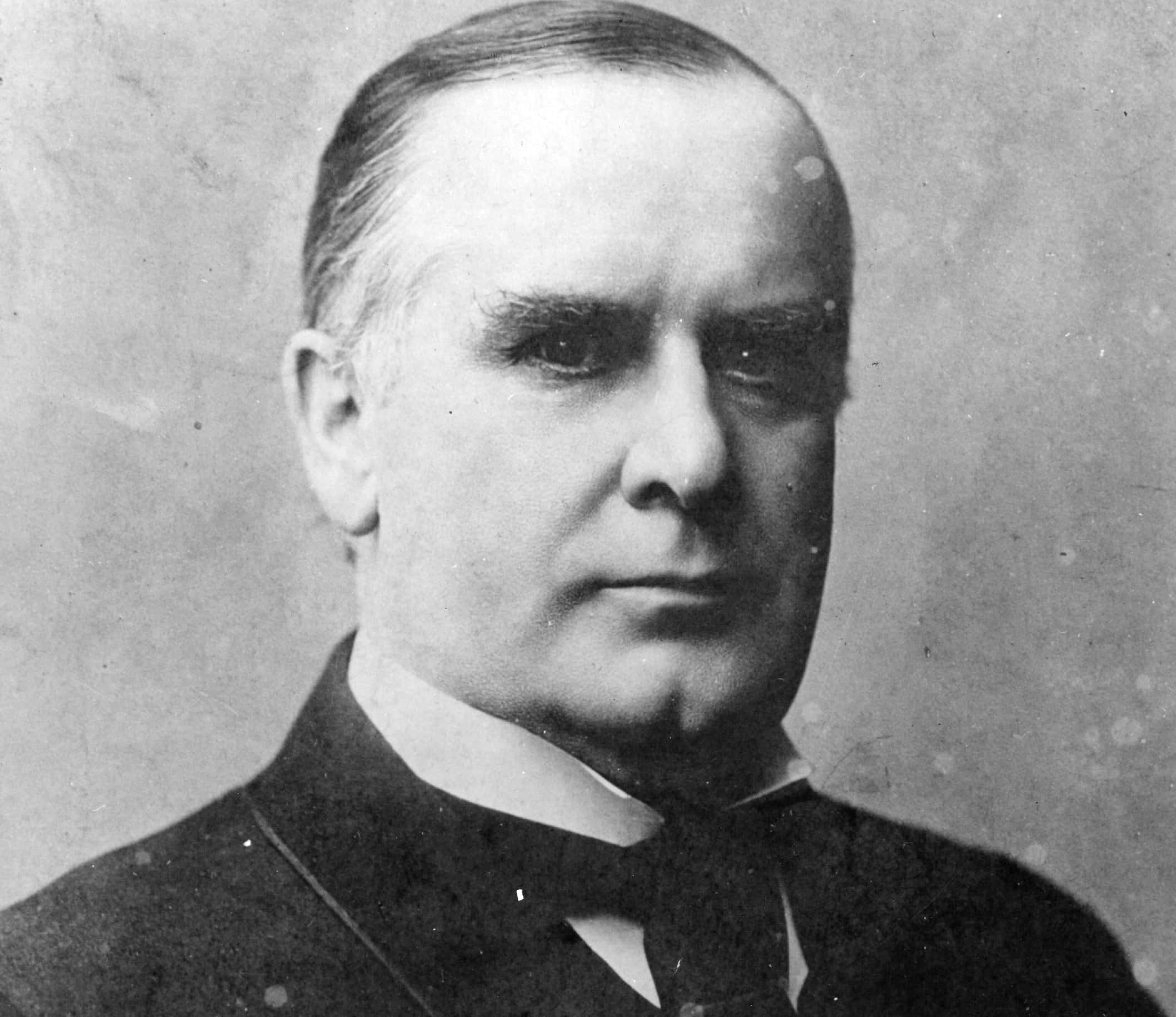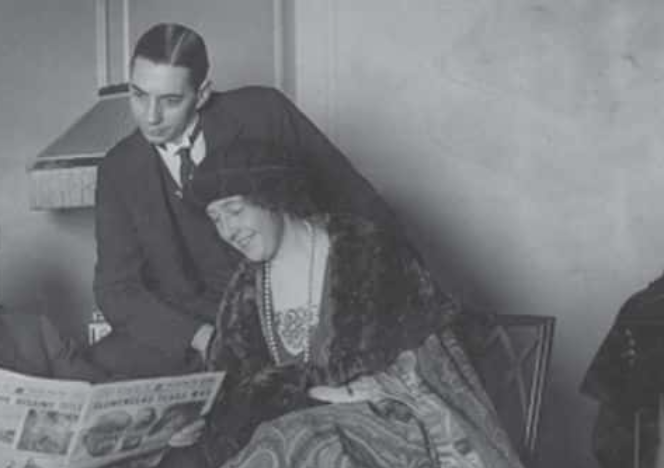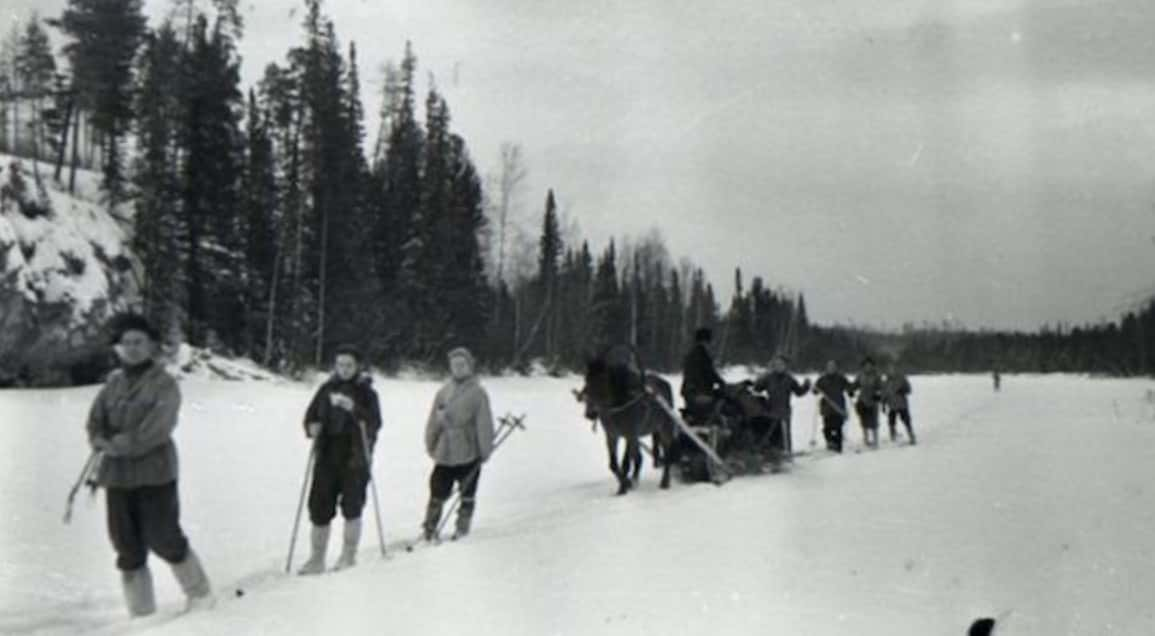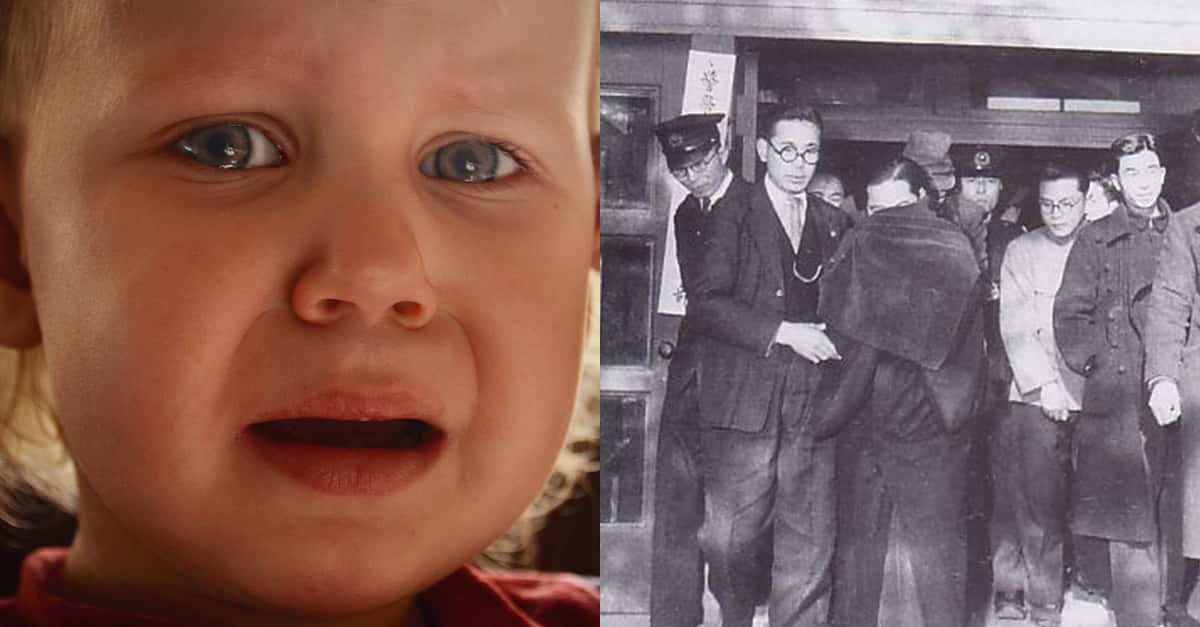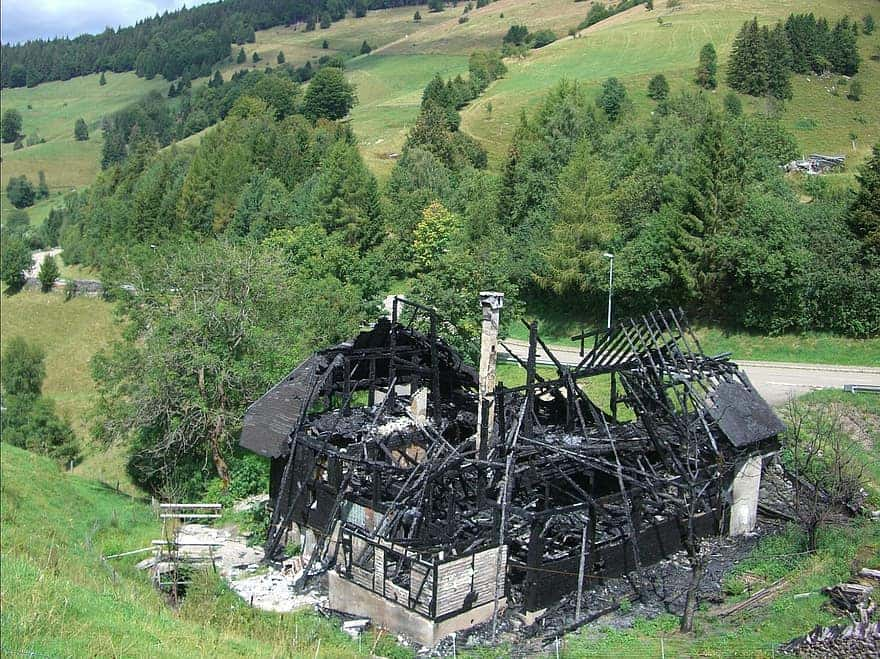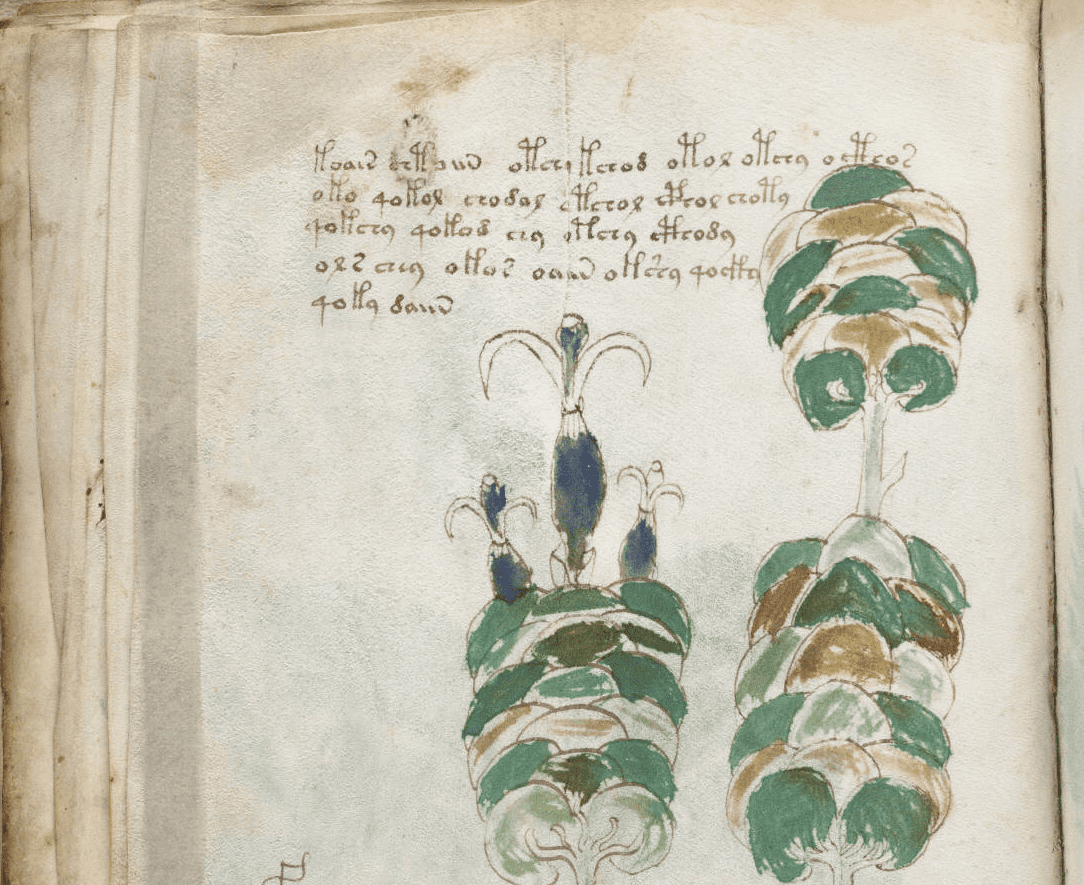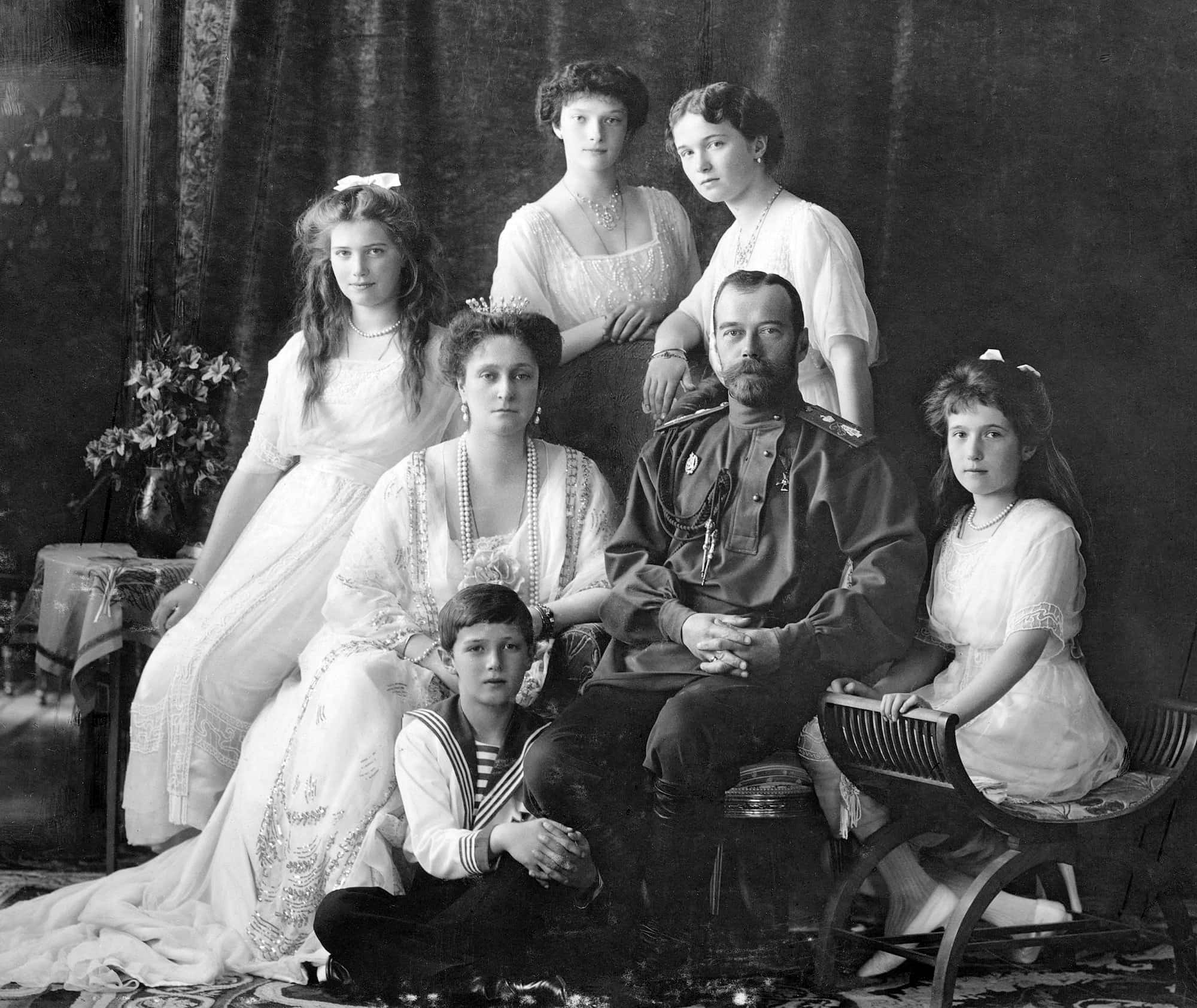The only thing scarier than a horror movie or a ghost story is knowing that that spine-tingling tale was based on something that actually happened in real life. In this list, we introduce you to the moments that history wants you to forget. From terrifying assassins to eerie coincidences, chilling discoveries to unsolved mysteries, this list reveals the world's true darkness.
Chilling Mysteries In History Facts
1. Museum of Mummies
Ferdinand I of Naples ruled with heavy-handed control, sparking a revolt amongst the nobility. He showed no mercy towards his vanquished foes and, after insincerely assuring them of safety, he had them eliminated instead. After their murders, he would have them mummified and added to his museum of mummies dressed in their clothes. If he thought anyone was plotting against him, he’d simply take them on a casual tour of the museum, which was totally morbid, but effective.

2. What Did You Say Your Name Was?
In the history of creepy coincidences, few get as creepy and cannibalistic as this one. In 1838, Edgar Allan Poe published his only novel, The Narrative of Arthur Gordon Pym of Nantucket—a story about a group of shipwrecked sailors who end up drawing straws to see which of them will be eaten. The deadly lot ends up being drawn by a young man named Richard Parker.
46 years later, a group of real-life men found themselves likewise stranded at sea when a 17-year-old boy among them fell violently ill. With his chances of survival minimal, the others decided to resort to cannibalism for their own nourishment. Who was this boy? Richard Parker.

3. Mystery at Mayerling
In 1889, the 17-year-old Baroness Marie (Mary) Alexandrine von Vetsera was discovered, seemingly lifeless due to fatal wounds, beside her lover, the married Prince Rudolf of Austria, at their Mayerling country hunting lodge. His hunting companion had grown concerned and forced open the door with an axe, only to discover Rudolf collapsed on the bed with blood at his mouth. His mistress Marie was lying on the bed, also completely devoid of life.
4. Mommy Dearest
It was a situation that suggested one individual causing the demise of another before succumbing themselves; however, to this day, the sequence and chain of events leading up to their tragic ends remains unclear. Even though some believed that the prince caused his lover's end, recently discovered letters from the Baroness to her mother suggest that she planned to depart this life alongside the prince, out of deep affection. But the mystery doesn’t end there.
5. The Truth Remains
In 1959, Mary’s remains were inspected. Surprisingly, the examining doctor, Gerd Holler, found no puncture in her skull, but evidence indicated fatality from severe blows to the head. Holler was now obsessed with the case. He sifted through the affair's archives and discovered that only one shot had ever been fired. Consequently, he theorized that Mary met her end in an accident (perhaps from an abortion), and that Rudolf, in his grief, subsequently took his own life. The full story, however, goes with them to their graves.
6. I’ve Got a Bad Feeling About This
Throughout his youth, John Wilkes Booth was a promising figure. The son of theater actors was athletic, charismatic, and became a famous stage actor in his own right. However, he was haunted by a prediction made by a fortune-teller. The soothsayer decreed that Booth would be famous, but his life would be cut short, leading to a tragic conclusion.
In case you think this might be historical revisionism, Booth himself wrote down the prediction. He showed it to his family and reflecting on it whenever he was depressed.
7. Yikes
Even though his name isn't widely recognized today, Perilaus of Athens led an utterly chilling life, before experiencing a disturbing end. He invented a terrifying contraption called the Brazen Bull. The bull was a hollow statue of a brass bull. Once the man was locked inside the bull, Greek executioners would light a fire beneath. As the man was subjected to extreme heat, his anguished cries were magnified by a system of tubes, resulting in a sound akin to the roar of a bull.
8. Let the Music-Master Be the First to Play
Phalaris, a ruler in ancient Greece, didn’t exactly like Perilaus’ invention. He challenged the functionality of Perilaus's invention and insisted on testing it to see if the pipes would transmit the sound. Perilaus climbed inside the bull, Phalaris closed the door behind him, and set a fire underneath it, telling him: "Receive the due reward of your wondrous art: let the music-master be the first to play." Perilaus was extracted from the Bull prior to his life's end. Subsequently, he was hurled off a precipice.
9. The Hinterkaifeck Case
On March 31, 1922, a Bavarian family saw tracks leading to their farm, but not away again. They found a newspaper, and other clues indicating that somebody was nearby, but when they searched, they couldn’t find anybody. One of the family members ventured into the barn and abruptly met their end by a hatchet. This is where things get really twisted.
The later investigation established that screams from the barn couldn’t be heard from the house, but the others presumably went looking for the missing woman. They were eliminated one-by-one as they entered the barn. Nobody was ever charged, although more recently it’s been noticed that the pattern matches some killings that occurred elsewhere in the US at a similar time.

Sign up to our newsletter.
History’s most fascinating stories and darkest secrets, delivered to your inbox daily. Making distraction rewarding since 2017.
10. The Mystery of Hoer Verde
Hoer Verde was an entire town of 600 people in Brazil in the 1920s that vanished. The only things discovered were a discharged firearm and a profoundly disturbing message. It said, "There is no salvation." There was no evidence of conflict—no puncture marks, no pools of blood, nothing to suggest that the village had been under siege. It was suggested they evacuated fearing militia, as Brazil was unstable at the time.
However, there were nearby towns, and not a single one of the 600 ever turned up. Even if they all evacuated, and were ambushed on the way, disposing of 600 corpses and hiding all signs of conflict is no easy feat. Nor did the various guerrilla groups have any strong motive to do that. No one ever admitted or claimed they were present at a violent incident or anything of that sort.
No mass grave has ever been discovered. 600 individuals simply disappeared, leaving behind what could possibly be part of a bible quote and a discharged weapon.
11. Witchy Woman
Madame Delphine LaLaurie was an influential French-Creole woman married to Dr. Louis LaLaurie. However, despite their grand home and lavish affairs, Madame LaLaurie had a sinister secret. She was extremely cruel to the slaves working within her house . She enjoyed murdering her slaves, and having the bodies buried in shallow graves around the house. It wasn’t until a terrible house fire in the LaLaurie mansion, that outsiders finally made the grisly discovery of tortured slaves hidden away in the attic, scattered human body parts, and other unspeakable conditions. This story was recently brought to life by actress Kathy Bates and who played LaLaurie in American Horror Story: Coven.
12. The Aftermath
In the aftermath of the 1972 Munich Olympics, during which Israeli athletes were abducted and brutally slain by members of the terrorist group Black September, Israel initiated a substantial operation to locate and neutralize the masterminds behind this attack. One of these masterminds was Ali Hassan Salameh, who survived five attempts on his life before he ultimately met his demise. This is the eerie story of how he was finally defeated.
13. Love Thy Neighbor
We do not know the name of the assassin behind Salameh’s demise, but we know that her codename was Agent Penelope and that she went under the pseudonym Erika Chambers. She completed her mission with cold-blooded brilliance. She spent a considerable amount of time living as a friendly neighbor to Salameh, even befriending him when they met at the local swimming pool. After she planted the explosive device causing Salameh's demise, she vanished and has since remained unheard of.
14. Waking Ancient Forces
Genghis Khan is known for his violent rampages throughout the Eurasian continent, and his direct descendant Tamerlane was no different. On June 20, 1941, archaeologists from the Soviet Union uncovered his tomb. There was a dark message waiting for them. An inscription read, “Whoever opens my tomb shall unleash an invader more terrible than I.” Two days later, the Nazis launched their invasion of the USSR with Operation Barbarossa.
15. World Politics
On June 28, 1914, Archduke Franz Ferdinand, the heir to the Austro-Hungarian Empire, visited Sarajevo only to succumb to an attack by a young radical named Gavrilo Princip. At that time, Europe was a powder keg on the verge of explosion, and Princip's deed of ending Ferdinand's life served as the spark (and even became inspiration for a band name many decades later). But few people know the jaw-dropping truth about that fateful day.
16. Second Chance
Remarkably, Princip's successful attack on Franz Ferdinand was purely a matter of chance. Princip and five others attempted to assassinate Ferdinand earlier that day with primitive grenades. The attempt failed, and Princip fled the scene, only to dejectedly eat a sandwich in a café. Much to his astonishment, however, Franz Ferdinand desired to visit those who were wounded in the prior attempt on his life.
But his driver got lost and was trying to reverse the car—right in front of the café. Thus, Princip was granted another opportunity to eliminate his target. This time he succeeded.
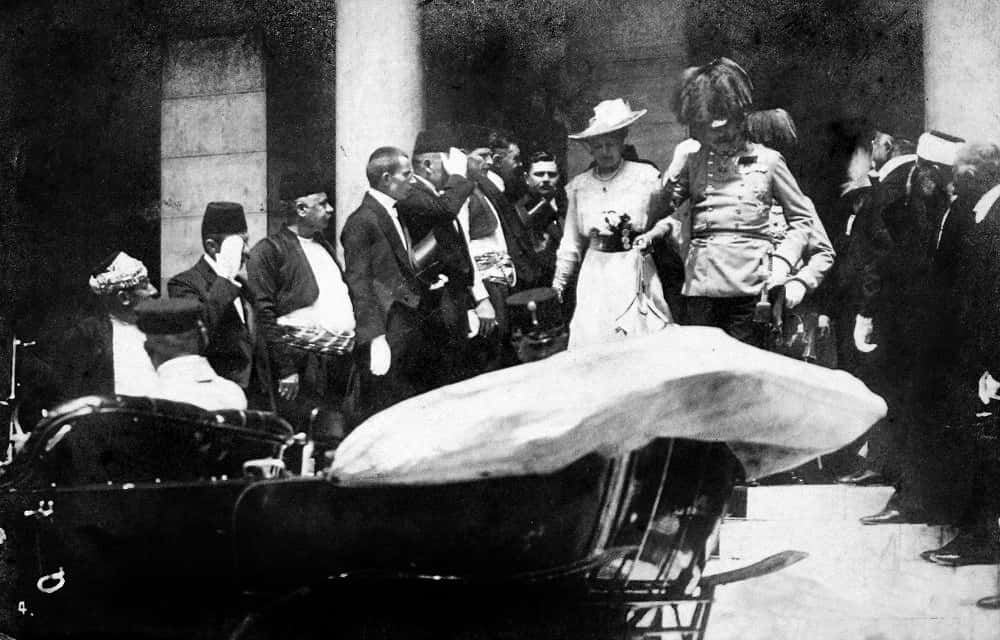 Wikimedia Commons, Karl Tröstl
Wikimedia Commons, Karl Tröstl
17. Nobody Wins This Time
After he carried out the lethal attack on Archduke Franz Ferdinand, Gavrilo Princip tried to end his own life by consuming a cyanide pill and throwing himself into a river. However, the pill was expired and didn't work, and the river was only inches deep. The assassin survived on both accounts and was captured. Since he was still three weeks shy of his 20th birthday, Princip was viewed as too young for the ultimate penalty.
What he was given instead was a life sentence in draconian incarceration conditions. By the time Princip's life ended, less than four years into his term, he was battling tuberculosis, weighed only 88 pounds, and required amputation of his right arm due to an infection. All the while, the WWI raged across Europe, ignited by his successful elimination of the Archduke.
18. The Tunguska Blast
Siberia, Russia, is so cold, that it is one of the least populated places in the world. It also hosted one of the most mysterious events of the 20th century. In 1908, there was an explosion so powerful, that trees were bent over flat for 800 square miles. Thankfully, no one was harmed, apart from some unlucky reindeer that didn't survive. It shook the ground so much that even England felt the blast. The sky lit up all over the world.
However, there was no hole in the ground where it should have fallen. No evidence of a meteor was ever found. Years later, NASA declared that the blast was caused by a meteoroid, but many people have theories that something else, something far more sinister, may have happened.
19. The Most Ruthless of All
Genghis Khan was a fearsome leader of the Mongols, famous for his destructive tendencies. He held the position of Emperor of the Mongol Empire from 1206 until his demise in 1227. Under Khan's rule, more than 40 million people lost their lives, as his battle strategies frequently aimed to completely wipe out entire civilian populations. But that's far from the most twisted part of his reign.
20. Creative Executions
Ironically, Genghis Khan's belief that he couldn’t spill blood only made him even crueler. Instead of simply stabbing them or beheading, he had to devise other methods of ending their lives. Now you might think that breaking their necks or choking would have done the trick, but this was pretty rare. His preferred method involved stacking them under a large board and then he and his nobles would dine on top of the board until they were all completely flattened. Not a fun way to go!
21. I took the life of the President.
Leon Czolgosz may not be a name you're familiar with, but in the 19th century, he became infamous for his actions which prematurely ended the presidential term of US President William McKinley. Born into poverty and driven to reclusiveness by a rough childhood, Czolgosz found solace in anarchism. Concluding that the way to reform American society was to destroy its power infrastructure, Czolgosz made sure to meet President McKinley in the Temple of Music at Buffalo’s Pan-American Exposition.
He shot two rounds into the president’s stomach before being set upon by the crowd. As the mob descended upon Czolgosz, McKinley faintly uttered five heartbreaking words. He said, "Go easy on him, boys."
22. Twisted Vengeance?
President McKinley succumbed eight days after he was shot by Czolgosz. Meanwhile, the assassin attempted to plead guilty at his trial but was forced to plead not guilty by reason of insanity. He was subject to the electric chair's sentence and his remains were placed within the confines of Auburn State Facility. Reportedly, his remains were doused with sulfuric acid, completely disfiguring him.
23. Little Rulers
129 years after Napoleon Bonaparte was born, Adolph H. was born. Does that number seem arbitrary? Well, 129 years after Napoleon came to power, so did Adolph H. Want more? How about 129 years after Napoleon attempted to invade Russian Territory, Adolph H. tried to do the same thing. Had enough? We’re not done. 129 years after Napoleon finally fell from power and was defeated, so was Adolph H.
24. Vengeance Will be Mine
In 1925, Shi Jianquiao's father, who served as an officer in the Chinese armed forces, tragically lost his life in a brutal act by the warlord Sun Chuanfang. Jianquiao's despair quickly turned to rage. The grieving daughter took it upon herself to carry out justice. She found Chuanfang ten years later and fatally shot him. But that's not where the story ends...
25. And Proud of it!
Incredibly, Jianqiao didn’t flee from justice after she’d fired three shots into her father’s killer. Not only did she remain at the scene to wait for law enforcement, she even brought leaflets to explain to passersby why she took action against Sun Chuanfang! Ironically, this was what saved her from serious punishment. Due to her motive, Jianqiao was given a full pardon in 1936, as avenging your father's demise was viewed by the Chinese courts as a justified enough action to perform a fatal act of your own.
26. Queen of Mystery
In 1926, the queen of mystery herself, Agatha Christie, mysteriously disappeared. Christie’s mystery novels featuring detectives Hercule Poirot and Miss Marple have made her the world’s best-selling author of fiction, according to estimates that have her neck and neck with William Shakespeare. She was already absurdly famous when she drove away from her home one evening and didn’t return.
Initial suspicions of foul play were directed at her husband—who had professed his love for another woman just days prior. Over 1,000 law enforcement officers and 15,000 volunteers were assigned to the case.
27. The Novelist Vanishes
Eleven days after her mysterious disappearance, Christie was discovered in a hotel several hours away. She had checked in under the name of her husband’s lover. When law enforcement questioned Christie about her actions, her response left them utterly astonished. The novelist said she had no idea what she was doing there and no memory of how she got there. In other words, her mind was a blank. She said she had total amnesia.
28. Who Solves The Queen of Mystery's Mystery?
Some people believe that Christie planned to simulate her own demise and implicate her husband. Others believe that the trauma of her husband’s infidelity sent her into a depressive episode. Christie recovered and went on to write many more mystery novels, but if she actually did remember what she was doing on that fateful day, she took that secret to the grave.
29. Dracula's Inspiration
The real-life Dracula, Vlad III, known as Vlad Tempes (the Impaler) ruled Wallachia from 1456 to 1462. Vlad lived during a time when there was constant conflict. He endured incarceration, his father met a violent end, and his older brother Mircea was blinded with red-hot iron stakes before being entombed while still alive. Vlad was notorious for his savage inhumanity towards his victims, and naturally, his preferred method of execution was impalement.
30. Did They Worship a Many-Faced God?
Ancient Indian society bore witness to a group of particular assassins known as the Vishkanya, or Visha Kanya, whose ranks consisted entirely of demure-seeming young women. Since the ascent and descent of monarchs typically resulted in broad-scale carnage, the Vishkanya were employed to discreetly handle those kings who had outlived their time, thus averting large-scale conflicts.
31. Fancy a Drink?
In keeping with the Vishkanya’s discretion and attempts to avoid rampant bloodshed, poison was their preferred weapon. These beautiful assassins came up with a brilliant plan. They ingested small amounts of poison until they were immune. They were then able to get close to a king, poison his drink, yet still drink from it themselves, "proving" its safety. This resulted in numerous myths about the order, such as the belief that their blood was poisonous, or that they had the power to cause a man's demise merely by looking at him.
32. Isidor Fink
In 1929, a man named Isidor Fink returned home to his New York apartment. Moments later, screaming was heard coming from inside. However, the doors were locked from the inside, and the windows were nailed shut. After removing the boards from the windows, law enforcement authorities had to rely on a small child to unlock the front door, as the window was too small for an adult. Upon entering, the law enforcement officers found that Isidor was lifeless, having three puncture wounds in his chest.
They were unable to locate a firearm. Nothing was stolen. There were no fingerprints, and there should not have been a way for a murderer to escape the apartment.
33. The Dyatlov Pass Incident
In 1959, nine experienced hikers set out on an expedition in the Ural Mountains in the Soviet Union. One member named Yuri Yudin, starting suffering from old health issues and had to turn back. Little did he know, his pain would save his life.
Yudin agreed to meet his fellow hikers in the town they were supposed to arrive at on February 12. But on February 20, there was still no sign of them. Rescuers sent out a party, only to find an utterly chilling sight. The tent was abandoned with all of the hikers' shoes in it. Keep in mind, this is a Russian winter and they were very experienced travellers. When people looked around, their blood ran cold.
34. More Like "Perish"atlov Pass
The tent had a substantial tear at the back as if it was created from the inside—almost as though something had been obstructing the front of the tent. The nine bodies were scattered, six seemingly succumbed to hypothermia, and three due to evident physical trauma. One victim had a fractured skull, two others had major chest trauma. But it got even stranger.
According to the doctor who examined them, the force required to cause the damage sustained would have been extremely high, comparable to the force of a car crash. One of the victims, perhaps most disturbingly, was missing her tongue and eyes. None were wearing shoes. Two of the victims were dressed only in their underwear. To top off an already strange story, their clothing had high levels of radiation.
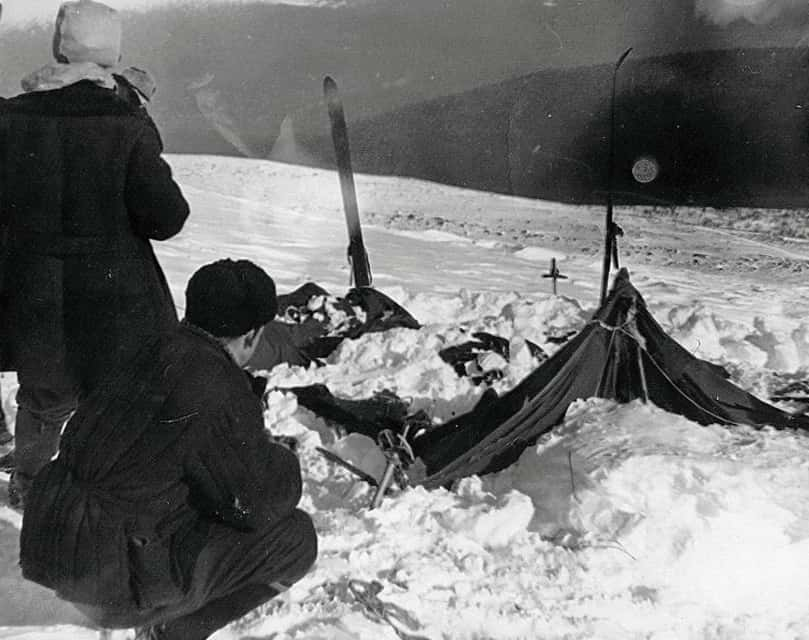
35. Angel of Departure
Miyuki Ishikawa lived a pretty normal life, until she received the nickname of Oni-Sanba or "Demon-midwife." Miyuki was born in 1897 in Kunitomi, Japan and later worked as a hospital director and midwife. In the 1940s, she began murdering infants from poor disadvantaged families via neglect. Her reason was chilling: she thought she was doing the children and their struggling families a service.
The Demon-midwife faced accusations of 103 fatalities, leading to an imposed sentence of eight years for her egregious acts. In reality, it's believed that over 200 children lost their lives under her direction.
36. Brief and Brutal
Qianfei was a Chinese emperor of the Liu Song dynasty, and it’s safe to say that he spent his reign horrifying as many people as he could. He kept several of his uncles confined like animals, perpetually instilling them with fear for their lives. He began an incestuous affair with his aunt while ordering other female members of his family to have in front of him. He eliminated anyone who didn't follow his commands. It's hardly surprising that his reign barely extended beyond a year before his life was abruptly taken.
37. The Mary Celeste
In 1867, a beautiful ship named the Mary Celeste left the coast of New York. The captain, who went by the name of Benjamin Briggs, accompanied his family and crew in conveying 1,700 barrels of spirits to Italy. They never made it to their destination. The boat was found floating safely in the Atlantic Ocean, off the Azores Islands, on December 5, 1872. This did not look like a pirate attack, because nothing was stolen, and all of the paper documents were still on board. The only thing missing was the people.
 Wikimedia Commons
Wikimedia Commons
38. Stranger Than Fiction?
The mystery of the Mary Celeste might have been forgotten to history had it not been for the imagination of Sir Arthur Conan Doyle. No, he didn’t put Sherlock Holmes on the case, but a short story he published offered a fictionalized first-person account of a crewman. His short story was published anonymously, and some details were changed (the name of the ship was given as “Marie Celeste,” and in the story, the boat is found intact, while in reality, a lifeboat was missing). The short story was mistakenly assumed to be true, and even reprinted as truth in the Boston Herald.
39. The Mad Trapper of Rat River
In 1930, a trapper nicknamed Albert Johnson was the target of a huge manhunt in Northern Canada after opening fire and hurting an officer. A hunting group was composed of dozens of hounds, law enforcement officers, local natives, and even an aviator who surveyed the area from the sky. The manhunt lasted 33 days, during which Johnson traveled 85 miles through a blizzard, hostile terrain, and cold weather (down to -40°F), even managing to climb a 7,000 feet peak. It is estimated that he burned approximately 10,000 kcal a day. In the final firefight, Johnson managed to fatally wound an officer. Almost a century later, scientists have started to uncover how Johnson could survive for so long in such an unforgiving environment.
40. The Man Who Laughs
After Johnson ended the officer's life, his response was utterly disturbing. He laughed. It was the only sound the other officers heard from him during the whole hunt. Then, he eventually met his end. The authorities never discovered who he was or how he acquired the skills to survive in such a hostile environment. A forensics expert recently found that he had an asymmetrical tailbone that was a foot longer than the other.
41. Dipped in Honey
King Herod the Great is definitely not remembered as much for his greatness as for being the evil King who wanted to slaughter the baby Jesus in Christian tales.
Another tale of his brutality? After accusing his wife of adultery and having her executed, King Herod had her body preserved in honey. He continued to perform disturbing acts with it for years afterward. After ruling for 37 years, he succumbed to a severe disease that decayed his body and infested him with worms. Kind of poetic, really.
42. Kept in Isolation
Kaspar Hauser was a young boy who stumbled out into the streets of a village in Germany in 1828. When people asked about who he was, he claimed he had lived in total isolation up until this point, saying he was held captive in a dark, small room with a low ceiling. He couldn't even stand up. He claimed someone would come and feed him every day but that was the only contact he would ever have. He had no idea who his "keeper" was. For a while, he hung around the village—until his past caught up to him. He was discovered lifeless from a stab wound. The mystery is still unsolved.
43. Diving Dogs
The Golden Gate Bridge has its canine equivalent in Milton, Scotland. For reasons no one understands, dogs crossing the Overtoun Bridge feel an overwhelming urge to leap to their deaths. More than 600 hounds have ended their own lives at the site, with some surviving the jump only to climb back up and leap again.
44. The Ourang Medan
A ship (in either 1940, 1947, or 1948, depending on which source you trust) lets out a distress call. The man making the phone call reveals that they're in the direst situation: no one has survived. A ship arrives to assist them and discovers that everyone has perished in place. But it gets worse: they are all looking up with terror on their faces. Rigor mortis kept most of them pretty much standing, too. They examined the ship and couldn't find anyone alive.
They start to tow it back, but then the unbelievable occurs: the ship catches fire and starts sinking. Some speculate that an elite Japanese chemical group was implicated and that one of their implements was unintentionally deployed. In 1959, a CIA agent writes a letter to the head of the CIA and mentions the Ourang Medan and believes that it holds the answer to a lot of airplane accidents and unsolved sea mysteries.
45. Booby-Trapped
In 1799, a man name McGinnis discovered a sinkhole in the ground in Oak Island off of Nova Scotia. Believing there could be buried treasure, he began digging and discovered a layer of flagstones. This kicked off a two century-long tradition of treasure seeking in the area, and just enough evidence has been found to keep people digging. Among the discoveries were a set of chilling stone inscriptions. They were allegedly translated as “forty feet below lie two million pounds.” No treasure has been found despite all this, but the hunt continues to this day.
46. The Bodom Lake Mystery
In 1960 in Finland, a group of four teenagers went camping near Lake Bodom. Two girls, both aged 15, and two guys, both aged 18. At night, three of them met their end while only one of the boys made it through. Their bodies and the horribly injured boy were found a few hours before noon. The badly injured boy was laying on top of the tent.
The boy, named Nils Gustafsson, was not fully conscious and had several fractures in his skull. Against all odds, he survived and is still alive today, but with no memory of what happened. Law enforcement made every effort to discover what had occurred. They looked high and low, launching a huge manhunt in the Espoo forests. But many people think there is another, far darker explanation.
47. How The Tables Have Turned
In 2005, law enforcement authorities in Finland surprised everyone by unexpectedly arresting Nils Gustafsson. They accused the survivor of being the murderer. There was a lengthy trial, where experts debated blood spatter and shoe prints. In the end, Gustafsson was released. To this day, only the murderer knows who took the lives of the three hikers.
48. Beware the Bloody Benders
In the 1870s, a family named the Benders immigrated to America from Germany. The family consisted of four people: an older husband, a wife, and two younger adults. No one knows if the younger two were a couple or they were brother and sister. They built their own home deep in the woods, but it wasn't just for cozy fires and family dinners. They built their cabin for a dark purpose: it was designed specifically to lure people in.
49. Mind-Bending Brutality
They would lure in unsuspecting victims, guide them to a "seat of honor," and once they sat, release a trap door. The victim would fall into a cellar, where they would perish. One day in a nearby town, the carriage for a traveler came in without its owner. A few days prior, a man passed through that town and headed towards the direction of the Benders' family home. The town got together and invited the locals to discuss the missing owner of the carriage.
Eventually, it was determined that this family had something to do with it. But by the next morning, the whole family was gone. The town dug up a number of bodies over the next couple weeks on their land. By 1873, they'd discovered 20 bodies, many with crushed skulls. For several years after this, there were several sightings of the family but it ended up not being the same people. No one knows what happened to them.
50. Paging D.B. Cooper
In 1971, a man named D.B. Cooper took control of a Northwest Airlines flight by asserting that he possessed an explosive device in his briefcase. He compelled the plane to land in Seattle and retained the passengers against their will. He demanded $200,000 and parachutes. Once he got what he wanted, he told the pilot to fly towards Mexico. They were being trailed by law enforcement aircraft, but D.B. Cooper still somehow managed to leap out of the back door with a parachute.
No one saw him jump, and he was never seen again. The FBI opened an investigation on him, and still found nothing. But that's not even the creepiest part? During the flight, Cooper never raised his voice. He was calm as a whistle, according to the passengers. Even creepier? No one was hurt. Everyone survived.
51. Search for the Lost City
The story of Percy Fawcett’s disappearance was also made into a film in recent years, called The Lost City of Z. The film charts Fawcett’s explorations deep into the Amazonian jungle, searching for a lost city. It said to have been the ruins of an ancient complex civilization. Fawcett made seven mapping expeditions between 1906 and 1920, and one solo expedition in 1920 specifically to look for the city’s ruins.
52. Swallowed by the Jungle
In 1925, Fawcett made a final expedition to the jungle in Brazil to search for a lost city he called “Z.” He brought with him his eldest son, Jack. Yet their fate was alarmingly tragic: The duo mysteriously disappeared and were presumed to have met their end either through foul play or natural causes. Fawcett’s compass was found in 1927, but neither their remains nor the lost city they searched for has been found.
53. The Sodder Nightmare
Christmas Eve, 1945. The Sodder family home in Fayetteville, West Virginia, burned to the ground. There's the father, George, the mother, Jennie, and nine children. Four of the children escaped, but five were believed to have perished in the fire. But then, even though the fire was nowhere near hot enough to burn through bone, not a trace of them were found.
Here's the freakiest part: Two months before, a visiting salesman told George that his house would "go up in smoke...and your children are going to be destroyed." The salesman attributed this to George's "dirty remarks against Mussolini." George, an Italian immigrant, had been outspoken against Mussolini, which angered some in his Italian-American community. Another visitor later told George that his fuse boxes would "cause a fire someday." This was after George just had his electricity rewired and inspected to be safe. In the weeks before Christmas, the older Sodder children noticed a car following them through the main town as they walked home from school.
 Zastolskiy Victor, Shutterstock
Zastolskiy Victor, Shutterstock
54. A Terrifying Night
During the night of the fire, Jennie awoke to a strange phone call after midnight, asking for a name she did not know. At 1:00 am, Jeannie heard a loud banging on the house's roof but went back to sleep when she did not hear anything further. Half an hour later, she smelled smoke. George, Jennie, and four of the children escaped the house. They yelled to the unfortunate children upstairs but heard no response. The fire had already been engulfing the staircase, so they could not rescue them. George tried to go outside, around the house, to use a ladder to climb the window to the attic and rescue the children.
When things couldn't get worse, the Sodders were dealt a terrifying betrayal. The ladder was not in its usual place. It would be found 75 feet away in an embankment. Then George tried to drive both his trucks to the window, then climb them. But neither truck would start, despite both having worked the previous day. Later, a telephone repairman told the Sodders that the house's phone line had not been burned through in the fire as they had initially thought, but cut by someone.
The driver of a bus that passed through Fayetteville late Christmas Eve said he had seen some people throwing "balls of fire" at the house. Other witnesses claimed to have seen the children themselves. One woman who had been watching the fire from the road said she had seen some of them peering out of a passing car while the house was burning.
55. A Chilling Clue
Years later, in the 60s, Jeannie found a disturbing clue. A letter came addressed to her, postmarked in Central City, Kentucky, with no return address. Inside was a picture of a young man around 30 with features strongly resembling their son Louis, who would have been in his 30s if he had survived. On the back was written: “Louis Sodder I love brother Frankie Ilil boys A90132 or 35.”
The Sodders never stopped believing their children were alive, and Jeannie wore black in mourning every day for the rest of her life.
56. Lead Masks & Strange Pills
These two individuals were discovered lifeless on a hill, positioned adjacent to one another and donning lead masks. Both were dressed in elegant suits and waterproof jackets, and neither exhibited any signs of aggression. A note was found at the scene that said, "16:30 be at the agreed place. 18:30 swallow capsules, after effect protect metals wait for the mask sign."
Presumably these "capsules" are what caused their demise—unfortunately, their organs were not properly preserved, and toxicology could not be performed, so we'll never know for sure. The weirdest part is the note. It implies they were waiting on something to take effect after ingesting the capsules. If the capsules are indeed what caused their demise, it's unlikely they knew anything about it beforehand.
There was also an empty bottle of water nearby that they'd gotten from a bar three days prior. Witnesses say one of the men looked very nervous and kept checking his watch.
57. Who Are You?
On December 1, 1948, a man’s body was discovered on Somerton Beach, Australia. The man was around 40 years old, and wore a green sweater and a raincoat, despite the high heat. No pieces of identification were found, and all the labels on his clothes were cut out. Oddly enough, his fingerprints and dental records didn’t match any of the registered profiles.
The autopsy did not find any trace of poison in the system, nor could it determine the reason for him passing away. The man's picture then gets spread around the world, but nobody seems to recognize him. A month later a suitcase is found, likely belonging to the victim, full of clothes...with the labels cut out.
58. The Unsolvable Tamam Shud Code
One day, law enforcement officials find a paper with the words "Tamam Shud" printed on it, tucked away in a concealed pocket of the man's trousers. Turns out that those words are from a rare edition of a collection of poems from Omar Khayyam. After a photo of the document and details about the book were made public, a man ended up reaching out to law enforcement, informing them about a perturbing piece of evidence.
On November 30, 1948m The day before the body was discovered, he found a very rare edition of the book on the back seat of his car on the night of November 30, 1948.The law enforcement officers unearthed a coded message in the back of the book: Five lines of seemingly random letters, one of which is crossed. The code was never decrypted. Even today, we have no idea of who he is, or what happened.
59. The Perfect Hiding Spot
Sarah Winchester was the heiress to the family known for Winchester weaponry, and one of the most wealthy individuals worldwide. She was also a devoted spiritualist. These two facts conflicted when she began to believe that she might be haunted by the spirits of all those individuals who lost their lives due to Winchester rifles. To avoid those angry spirits, Winchester devoted her basically infinite budget to building the Winchester Mystery House in San Jose, California.
60. Trap House
Until her final days, the Winchester House was in continuous construction, with a dedicated crew of workers assigned to build misleading doors, stairways leading to nothing, and corridors with no exit, all to ensnare the harmful spirits pursuing Sarah Winchester. The Winchester House has over 160 rooms, 10,000 windows, and nearly 50 fireplaces.
61. Danse Macabre
Among the Malagasy people of Madagascar, it is tradition to periodically remove one’s ancestors from their grave to change their clothes. During the "famadihana" or “turning of the bones,” the surviving relatives will parade the skeletons through town and even dance with them before returning them to their graves.
62. The Voynich Manuscript
A beautiful book was discovered from the 1400’s. It has illustrations of plants that do not exist, and it is written in an unknown language. Some people believe that the Voynich Manuscript is in code, but no one has been able to figure it out. Theories surrounding the book point to witchcraft, but to this day, no one really knows who wrote it, or why.
63. Fit for A King
King Richard III of England famously had his nephews and true heirs to the throne, King Edward V and Prince Richard locked up in the Tower of London. For nearly four centuries now, their bodies have been generally believed to be those of two skeletons found in two crates buried under the steps of the tower. Perhaps it only serves Richard III right, then, that his own missing body was found in 2013 beneath a Leicester parking lot.
64. The Stuff of Nightmares
In 2018, archaeologists in Tlalpan, Mexico, uncovered a nightmarish scene. Beneath a former priests’ dormitory was a 2,400-year-old burial site, and in that burial site were ten skeletons, their skulls deformed, their arms interlocked, and arranged in a circular, spiral pattern, as if they had been crushed while playing the world’s creepiest game of ring-around-the-rosy. I’m no expert on Mesoamerica, but I’ve seen enough scary movies to know those archaeologists are now cursed.
65. Circle of Life
The archaeologists aren't sure about the circumstances leading to the demise of the bodies discovered at the Tlalpan site, or the reasons for their particular arrangement. They do think, because the bodies all differ in age, and appear to be arranged in a kind of chronological sequence, from infant to elderly person, that it may have something to do with a philosophy of life, aging, and rebirth. Surely, there was a less terrifying way to express that idea?
66. Benjamin Franklin or Benjamin Frankenstein?
Did Benjamin Franklin engage in multiple instances of taking human life? This was the question on everyone's lips in 1998. Conservationists were hard at work in Franklin's old London home when they uncovered a mass grave with over 1200 human and animal skeletal remains in the basement. Even creepier, the remains dated back to the exact time that Benjamin Franklin lived in the home.
Why on earth was Benjamin Franklin stock-piling animal and human bodies? It's a fair question! Historians believe that Franklin allowed his friend William Hewson to use the home as a secret anatomy school. Because studying with real bodies was controversial, the basement was perfect, acting as a secret underground medical classroom where students could learn without fear of penalty.
And we thought the most interesting thing about Franklin was the whole lightning kite thing...
67. La Mort, J'Adore
Back in 1130, France decided to use one particular part of the city as a huge cemetery. While most cities chose outlying areas for their final resting places, Paris (as always) opted for a different strategy. There was just one problem: by the end of the century, the burial ground was full to the brim. What could they do? Start burying people further away? Heck no! Let's get our hands dirty.
The French decided to unearth the departed and arrange their remains within the cemetery building itself. Yeah. Like, the nooks and crannies, the walls and the roof. As time went on, they just kept throwing bodies in here until they were stuck with a truly disturbing amount of bones. This isn't to say all Parisian cemeteries worked like this, but that this one, "Les Innocents," did not live up to its name.
68. The Weirdest Tourist Attraction
Flash forward a few centuries and by 1874, Paris had transformed its gruesome history into a macabre tourist attraction: a mausoleum that people were expected to visit. This is the origin story of the famous Catacombs of Paris, a wide-ranging series of tunnels lined with artfully arranged human skulls and bones. There's even a room that highlights deformed skeletons. Twisted indeed...
69. Mummified Remains
In 2010, two women were cleaning out the abandoned basement of their apartment building when they made an utterly chilling discovery. After the women found a mysterious trunk in their building’s basement, they opened the dusty bag, and felt their blood immediately turn to ice. The trunk contained the mummified remains of two newborn infants wrapped in 1930s newspapers.
When the law enforcement investigated, they uncovered the trunk's eerie story. The owner was Janet M. Barrie (no relation to J.M. Barrie, the author of Peter Pan, by the way) and the bodies in the trunk were her children. What happened? Why did Barrie place her babies' remains in the trunk? Tragically, we will never know. Barrie lived to 97 and never told a soul.

70. The Evil Island
The island of Poveglia, located ten miles off the coast of Venice, was used as a quarantine site for plague sufferers during the 18th century. Later it was transformed into a lunatic asylum where lobotomies and other inhumane surgeries took place; according to one legend, the head surgeon at the asylum took his own life there, driven insane by the spirits of those patients he had victimized. Historians estimate that as many as 100,000 people have lost their lives on Poveglia over the centuries.
71. Fair Warning
Poveglia has a rich legacy of terror, but perhaps the island has always had an air of foreboding evil about it. Before it became a fortified site, or a quarantine station, or an asylum, the island had been offered to a group of Camaldolese monks. The monks rejected the offer, preferring to go homeless rather than build a monastery on the island. Maybe they knew something no one else did?
72. Is This a Dagger I See Before Me?
When King Tut’s tomb was unearthed, researchers found an iron dagger that was still remarkably sharp thousands of years later. Having a sharp dagger is not strange in itself, but the dagger’s origin is quite mysterious. Scientists have tested the metal and determined it came from a meteorite, and the ancient Egyptians most likely didn’t have the technology to craft a weapon from meteorite debris.
As a result, it either came from another more advanced civilization or, as some are convinced, it might have been left behind by aliens.
73. The Curse of the Pharaohs
When Howard Carter discovered King Tut's tomb, the world was amazed--but also fearful of the mummy's curse. As time passed, it looked like they were right to be afraid. One of Carter's team, Lord Carnavon, met his end soon after the discovery. Then the entire city of Cairo was cloaked in darkness, with the lights going out under strange circumstances.
The disasters kept coming. The people who discovered the tomb and those who visited its unearthed treasures fell like flies. An Egyptian prince was shot by his wife. The man who X-rayed the mummy encountered mysterious circumstances leading to his demise. A man on Carter's team was poisoned. Another member, Richard Bethell, was suffocated until he could no longer breathe. His father then took his own life. Tldr: Don't mess with ancient Egypt, guys.
74. World Record Holder
A noblewoman who owned land in the Kingdom of Hungary in the late 16th and early 17th century has a rather notorious world record: she is listed as the most prolific female murderer of all time. Countess Elizabeth Bathory de Ecsed would attract peasant girls to her castle with the offer of work and shelter, only to then tragically and ritually end their lives. During her trial, it was stated that she was responsible for the demise of approximately 650 girls, though historians have since questioned this claim. Either way, her victims totalled into the hundreds.
75. Kids in the Hall
Without a doubt, the execution of Queen Catherine Howard of England gets a bit overshadowed—after all, she was only Henry VIII’s fifth wife and not even the first to be executed. However, she inspires one of the more interesting Tudor ghost stories, with reports of her spectral presence in Hampton Court’s “Haunted Gallery.” It's claimed that when Catherine faced charges for adultery in 1539, the teen queen somehow evaded capture.
She ran towards the corridor which led to the chapel where Henry was at Mass. Before Catherine could reach his door and beg for mercy, the guards caught up with her and dragged her back, kicking and screaming. Today, a ghastly female form, dressed in white, is said to be seen floating down the same gallery, sometimes still screaming.
76. The Count of St. Germain
Throughout the 1700’s, a man who is only known as the Count of St. Germain was traveling throughout Europe. He was spotted many places, and yet he always seemed to appear to be the same age. No one knew where he came from, but he could speak multiple languages, and was talented in just about everything. He was also an alchemist--one of the people who was studying the secret to immortality. On paper, his life ended in 1785.
However, there are records of him being alive afterwards--still looking just as young as he was years before. Some believe he actually figured out how to live forever.
77. Where’s Buffy When You Need Her?
Before there was Dracula, there was a tuberculosis-stricken girl named Mercy Lena Brown. In 1892, the 19-year-old Rhode Island resident succumbed to tuberculosis shortly after her mother and sister. As her brother lay dying too, locals whispered that dark forces were behind the family misfortune. Maybe a ghost or two with a grudge?
To get to the bottom of it, they dug up the family from their graves. When they opened the coffins, their blood ran cold. Mercy's remains were completely devoid of decay. Naturally, the villagers believed Mercy to be a vampire, cut out her heart, burned it, mixed the remains with water, and fed it to her sickly brother. For some reason, this did not cure the boy and he sadly met his end shortly after. Darn vampire-ghosts!
78. The Atlas Vampire
A female worker from the adult industry was found lifeless in Stockholm in 1932. Her body had been drained of blood, and there was evidence that her killer was drinking it. The murderer was never found, and became known as “The Atlas Vampire”.
79. Shades of Demise
New Jersey's Shades of Departure Road earned its name as the location of many highway robberies during the 18th and 19th centuries, and since then, it has been a frequent venue for numerous ghost sightings. However, the most terrifying incident on Shades Road might have been the uncovering of countless photographs of distressed women in the surrounding forest. According to the magazine Weird NJ, law enforcement initiated an inquiry into the photographs, but it came to a halt when they mysteriously vanished.
80. The Right to Remain Ghastly
The passing of Elva Shue in 1897 is the only documented instance in American history where the testimony of a "ghost" was accepted. When Elva was discovered lifeless at the bottom of the stairs, her husband Edward was reluctant to allow coroners to examine her neck. Elva’s mom, Mary Jane Heaster, did not trust Edward, but she could do nothing but pray.
Then, according to Heaster, Elva came to her in a “dream” and told her mother how Edward crushed her neck because he disliked the way she cooked dinner. Heaster successfully petitioned for her daughter’s exhumation and, sure enough, the coroner determined foul play in the same manner as the alleged ghost’s details. But it gets even weirder: Edward’s lawyer allowed Heaster to testify in order to make her look insane. But it backfired with the jury fully believing in her ghastly testimony.
81. Make Light of This
Gibraltar Point Lighthouse is one of Toronto’s oldest buildings. It is also the site of one of the city’s grisliest murders. In 1818, the first official guardian, Johan Paul Rademueller, tragically fell victim to a fatal incident involving an axe. This occurred when a group, initially intending for a social visit for drinks, got embroiled in a violent disagreement. No convictions ever resulted from this case, which invites the imagination to fill in the gaps. Although the lighthouse has been out of commission for years, its light is still reported as “on” every now and then. Along with the creepy groans of the unlucky keeper, whose ghost is still waiting for justice—or maybe just boats.
82. Dear Theodosia
On New Year’s Eve 1812, the young Theodosia Burr (yes, daughter of Aaron Burr) left to visit her father up north via ship. Unfortunately, utter tragedy struck. A storm destroyed the vessel, and neither the boat nor Theodosia was ever seen again. Decades went by and in 1869, a woman who lived by Nags Head reportedly called a doctor from Elizabeth City to attend to her, saying he could take any item in her house as payment.
When the doctor tried to claim a portrait on the wall, the sickly woman sprang straight up, and yelled, “It is mine! You shall not have it! I am on my way to visit my father in New York, and I am taking this picture of his darling Theodosia!” She then, apparently, snatched the painting, ran into the ocean, and—like Theodosia—was never seen again.
83. The Green Children of Woolpit
According to historic records from the 12th Century, two children- a brother and sister with green skin appeared in a village called Woolpit in Suffolk, England. They wore strange clothes, and spoke a language that no one could understand. They only ate beans and refused to eat anything else for several months. The boy became sick and did not survive. Once the girl grew up, her skin stopped being green, and she learned to speak English. She explained that they came from a place with other green-skinned people called St. Martin’s Land, which was an underground place where the sky was always twilight. There was a river, and a “luminous land” shining across the water.
The siblings said they climbed into a mysterious cave, and on the other side, there was blinding sunlight, and they were somehow in England. Modern-day historians believe that these children were actually Flemish immigrants, while others believe they may have been aliens from another planet, or beings from another dimension.
84. Doe Eyed Ghost
Virginia Dare was the first English child born in North America to the mysterious colony of Roanoke Island in 1587. When her grandfather left for England for supplies and returned later, however, he came back to a disturbing sight. The village was gone. Not abandoned: gone. The houses had been taken down, and the materials had been moved. There was no trace of the pilgrims that had been there earlier. Virginia and the rest of the settlers had vanished. According to lore, Dare was kidnapped by local tribes and transformed into a white deer. She then lost her life, and her ghost—still in white doe form—supposedly haunts the Outer Banks even today.
While recent evidence suggests that colonizers simply moved closer inland, to this day, no one knows what one chilling clue means. After everything was gone from Roanoke, the only thing left was the word "Croatoan" carved into a tree.
85. Zombie for an Hour
In Brazil, a two-year-old boy tragically lost his life to pneumonia. His grieving family made funeral arrangements over the next few days—and then received the shock of their lives when the boy suddenly sat upright and asked his father for water. The parents, though overjoyed and astonished, faced another devastating heartbreak. The boy lost consciousness again and despite all efforts, could not be revived, leading the coroner to pronounce him lifeless once more.
86. Ricky McCormick
In 1999, Ricky McCormick, who was 41 years old, was discovered lifeless in the middle of a field in Missouri. Inside of his pockets were two pieces of paper with strange writing that may actually be a secret code. The letters were in Ricky’s crude handwriting, but his family was confused because Ricky could not read. No one has found the killer, or figured out what his messages meant.
87. Based On A True Story
On November 13, 1974, Ronald DeFeo Jr. systematically moved through each bedroom in his house, ending the lives of everyone as he progressed. His parents, two brothers, and two sisters were all found in the exact same position: laying on their stomachs in their beds. DeFeo asserted that voices urged him to eliminate his family, though he altered his account numerous times. He is currently serving six consecutive life sentences. The movie, The Amityville Horror, is based on the spine-chilling experiences of the family who moved into the home following DeFeo Jr's incarceration.
88. Eternally Creepy
You may be familiar with the legend of the Bermuda Triangle—the small area of the Atlantic ocean that seems to be responsible for more unexplained disasters than anywhere else. What you may not know is that the "discoverer" of the New World himself, Christopher Columbus, had his own weird encounter with this spot, perhaps setting the tone for its future visitors right off the bat. According to records from the time, Columbus reported seeing a giant flame, a mysterious light in the distance, and unusual compass readings while passing through the area.
89. An A-Maze-Ing Tale
Egypt, it shouldn’t surprise you, is home to all sorts of mysterious ancient sites, but perhaps the most intriguing is the labyrinth which unwinds beneath Hawara. Modern scholars have yet to find the ancient maze but mentions of the Labyrinth of Egypt appear in the writings of Pliny, Herodotus, and Diodorus. Writing more than 1,300 years after the labyrinth’s supposed construction, Herodotus claimed the labyrinth contained more than 3,000 rooms (half of them underground), and six separate courtyards. If true, the labyrinth would have been larger than the temples at Karnak and Luxor combined.
90. A Cul-de-sac
In 2008, a team of archaeologists scanned the ground near Hawara. What they found was astonishing: walls, several meters thick, joined together and forming several closed-off rooms. Could this be the ancient labyrinth? We might never know. No one knows why, but Egyptian authorities immediately halted further exploration.
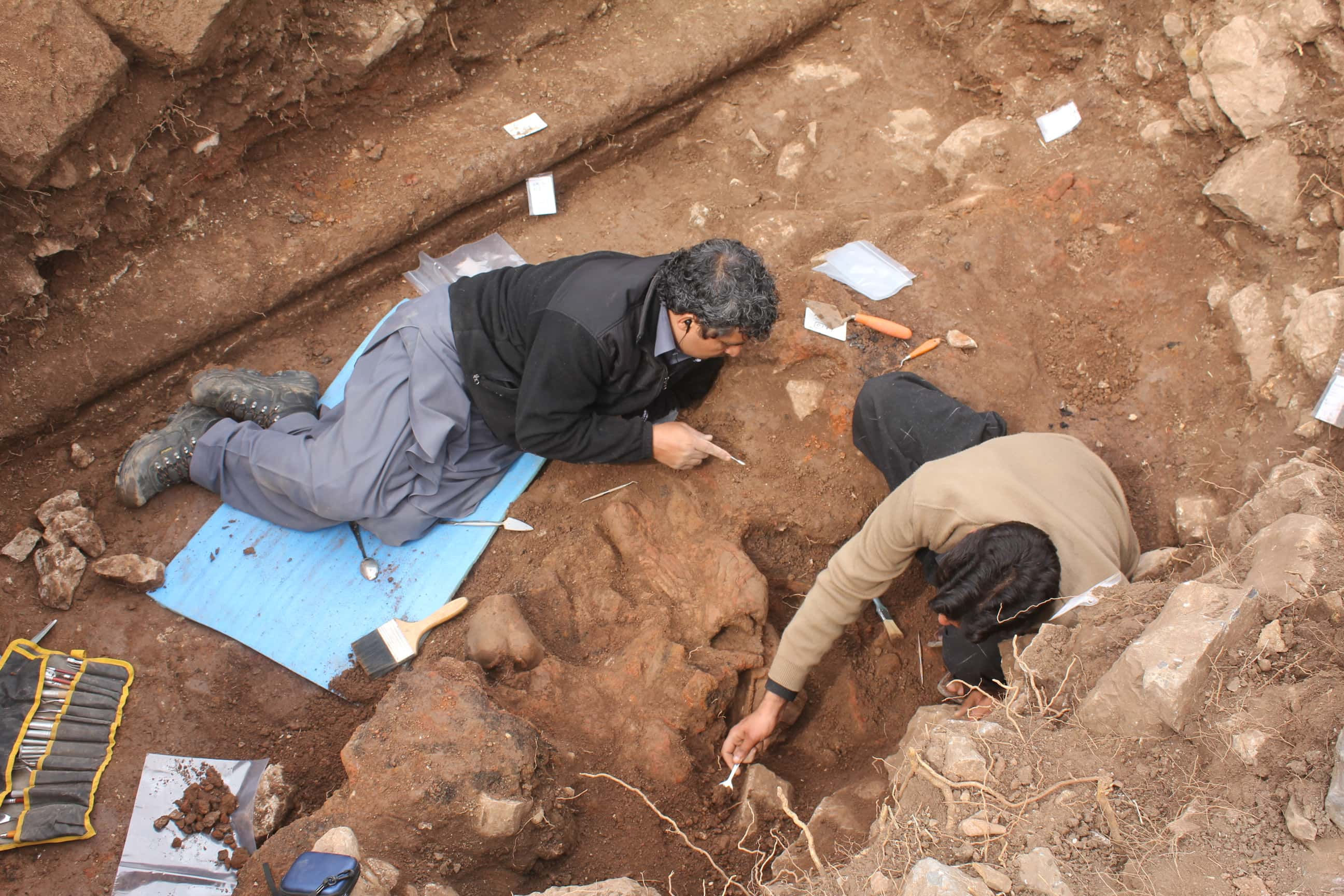 Wikimedia Commons Muhammad Zahir
Wikimedia Commons Muhammad Zahir
91. The Mesoamerican Metropolis
Teotihuacan, a 32-square-mile city near modern-day Mexico City, predates the Aztec period by more than a millennium. At one point, Teotihuacan had a population of over 125,000 people, which would’ve made it one of the largest cities in the world. To house its hundred thousand citizens, Teotihuacan depended on an eerily “modern” solution.
92. Advanced Planning
Teotihuacan is notable for its advanced, mathematically precise architecture. At its center sits the Pyramid of the Sun, the third largest pyramid in the world. Together with the Temple of the Moon and the Temple of Quetzalcoatl, the Pyramid of the Sun forms a row of buildings which aligns exactly with Orion’s Belt. Aerial observers have noticed a similarity between Teotihuacan and a more modern image: with the Pyramid of the Sun and the Temple of the Moon serving as large microchips, Teotihuacan bears an uncanny resemblance to a circuit board.
93. The Call Is Coming From Inside The House
What became of the people of Teotihuacan? No one knows. The city was an important political and industrial center in Mesoamerica, and its architectural style had a major cultural impact on both the Mayan and Aztec cultures. Despite a noticeable lack of citadels or fortifications, there is no evidence that the city ever faced a siege from foreign armies. Rather, the city’s collapse seems to have come from the inside.
94. The Revolution
Teotihuacan faced several years of famine and population decline; juvenile skeletons show signs of severe malnutrition. Archaeologists have noticed that Teotihuacan’s most damaged buildings tend to be large, single-family dwellings and palaces. Could Teotihuacan’s working class have risen up against an ancient 1%? It could’ve happened, but the question remains—where did they go from there?
 Diego Delso, CC BY-SA 3.0 , Wikimedia Commons
Diego Delso, CC BY-SA 3.0 , Wikimedia Commons
95. Who Were the Poe Toasters?
No one knows the cause of Edgar Allan Poe's demise. At least, those who once knew are long gone, and all solid documents of his passing have been misplaced. Poe was found on Baltimore’s streets on October 3, 1849. Eerily, he was wearing someone else's clothes. He was in pretty bad shape, and just four days later, he succumbed in the hospital, delirious.
He was never coherent enough to explain what had happened, and he kept shouting "Reynolds" during his final night. There's nothing remaining from his medical records, not even the certificate confirming his demise. Speculation about the reasons for his untimely departure varies broadly, from self-inflicted harm, cholera, heart disease, to epilepsy. He was only 40 years old.
It gets even creepier. For 75 years, someone had visited Edgar Allan Poe's grave at night on October 7, marking the night of Poe's departure from this world. Cloaked entirely in black, with face hidden under a wide-brimmed hat, the individual sips from a glass of distilled spirits, leaving behind the bottle and three roses on the grave. The toasting stopped in 2010 for some reason.
96. Wrong Targets
One morning, Russia noble family, the Romanovs, were ushered down to the cellar of the house. When they arrived, their blood ran cold. An execution squad arrived to carry out the sentences. The men were each supposed to fire at a different family member, but many privately didn’t want to shoot the girls, so they all aimed at Nicholas and Alexandra instead. The firing was so wild that the men managed to injure each other in the process.
97. Impenetrable
In the months leading up to their executions, Alexandra had the children sew valuable diamonds into specially made underwear in case they needed quick money for an escape. On the night of the execution, the children had on special underwear that essentially functioned as body armor resistant to projectiles. The bullets ricocheted off the clothing, injuring but not causing the demise of the children. Once the smoke dissipated and the assailants realized that the children were still alive, they had to attempt to end their lives once more.
98. I'm Her!
Of the many women who claimed to be Anastasia, one woman, Anna Anderson, became the most famous. She first emerged sometime between 1920 and 1922 with the claim that she had escaped with the help of a sympathetic guard. Between 1938 and 1970, she persisted in her claim, engaging in a battle for recognition within the justice system.
Although some people who had known Anastasia disbelieved her story, others who also knew the Princess were convinced it was her.In 1994, a decade following her demise, her tissue was compared with a sample from Prince Philip, but there was no match, refuting her claim conclusively. It's now widely believed that Anderson was actually Franziska Schanzkowska, a mentally-ill Polish factory worker.
99. Case Not Closed
The Execution of the prestigious Romanov family occurred 100 years ago, but the investigation into their demise is still officially ongoing. In 2015, at the request of the Russian Orthodox Church, the case was reopened to officially confirm that their alleged remains really did belong to them. Nicholas, Alexandra, and three of the children were found in 1991 near the city of Yekaterinburg, but Alexei and Maria weren’t discovered until 2007. As of 2017, the investigation into their deaths, relating to unlawful activity, was still ongoing.
100. Bad Omen
Sometimes you receive an eerie omen which jolts you. During the filming of the 1976 film The Omen, a private plane was hired by the film crew to transport them but they had to make a last minute cancellation. Instead, the plane flew elsewhere, only it didn’t get very far. The plane crashed violently onto a road, into two traveling cars. And who was in one of those cars? The wife and children of the pilot who crashed the plane.
Sources: 1, 2, 3, 4, 5, 6, 7, 8, 9, 10, 11, 12, 13, 14, 15, 16, 17, 18, 19, 20, 21, 22, 23, 24, 25, 26, 27, 28, 29, 30, 31, 32, 33, 34, 35,
36, 37, 38, 39, 40, 41, 42, Reddit, 44, 45, 46, 47, 48, 49, 48, 49, 50, 51, 52, 53, 54, 55, 56, 57, 58, 59, 60, 61, 62, 63, 64, 65, 66, 67,68,
69, 70, 71, 72, 73, 74, 75, 76, 77, 78, 79, 80, 81, 82, 83, 84, 85, 86, 87, 88, 89, 90, 91, 92, 93, 94, 95, 96



